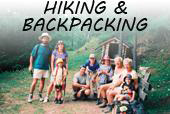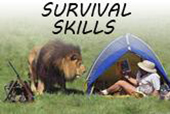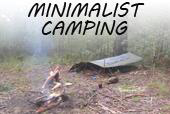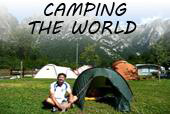
You may have the skills and the knowledge to make a fire, navigate in the wild, construct shelter and find food, but there is more to wilderness survival than just those things. It takes a strong mind to make it in the wilderness. There have been a number of people that have survived situations that were life threatening with little or no knowledge of how to survive in the wilderness.
Survival Starts with the Mind
When someone finds themselves in an environment of survival, there are a number of stresses that can have an impact not just on the body, but on the mind as well. Emotions and thoughts if not properly understood can transform someone that thought they were well trained and filled with confidence into an individual that is ineffectual in a survival situation. Understanding your reactions to such stresses can make the difference between success and failure in order to survive in the wild.
Stresses can Affect Performance in the Wilderness
Stress is a necessary evil. When one encounters stress, it challenges the individual. Knowledge about your strengths are often gained when one meets the challenge or particular stressors. Stress will test how well you can adapt and it often pushes one to perform at their best.
When one lets stress affect their performance a few things can happen. One is that you might find it difficult to make any decisions. Another might be outbursts of anger at your companions. You may experience forgetfulness, have low levels of energy and you may worry on a constant basis.
Others may find that they are withdrawn or cannot get along with others. Mistakes are more prevalent when you let stress get to you and sometimes you may seek to hide from your responsibilities.
When we are faced with stress, our typical response is to fight or take flight. Your body has a biological response to stress and reactions from even the most confident people may take them by surprise.
How to Deal with Stress and Wilderness Survival
The most important factor in anticipating stress when surviving in the wild is, know yourself as to your strengths and weaknesses. Concentrate on your strongest qualities and before going into the wild, develop those qualities you think you are lacking. Never pretend you are fearless. When you face up to your fears you can work on the skills that will enable you to become confident. Training and learning skills that relate to a particular fear will allow you to become more secure and better able to handle a situation should one arise.
Have a Realistic Attitude about the Situation
It is vital for survival in the wilderness that you see the situation for what is really are and not for what you would like it to be. It is advised that you keep all your hope and expectations grounded in reality. When you put yourself into a survival situation with expectations and hopes that are unrealistic you are leaving yourself open for disappointment and failure.
It may take a number of skills to survive in the wilderness, but your most important skill and tool is your attitude. If you believe in yourself, keep your feet firmly grounded in reality and have faith in your skills, your chances of surviving in the wilderness are much greater.












